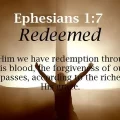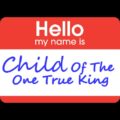by Trisha Bridges Smith
 The holiday of Halloween began through an observance in the Catholic Church, coming from a contraction of All Hallows Eve. (November 1, or “All Saints Day”). It is a Catholic day of observance in honor of saints. But there is more to the history of Halloween than just an observance by the Catholic church.
The holiday of Halloween began through an observance in the Catholic Church, coming from a contraction of All Hallows Eve. (November 1, or “All Saints Day”). It is a Catholic day of observance in honor of saints. But there is more to the history of Halloween than just an observance by the Catholic church.
In the 5th century in Ireland, summer ended on October 31. The Celts believed that on this day ghosts walked and mingled with the living. The name for this holiday was called Samhain (sow-en). It marked the third and final harvest of the year, the Celtic New Year.
The Druids sacrificed to their deities by burning victims in wicker cages. In this day in age, fires burned constantly. They were the center of daily living and vital to survival as so much centered around the fires. Prior to the ceremony, all fires were extinguished and then re-lit from the sacrificial fire.
Today modern pagans and Wiccans celebrate Halloween or Samhain as the New Year, the day when the veil between the living and the dead is at its thinnest. The pagan god dies at Samhain, only to be re-born again at Yule. For these pagans, Samhain is a day for remembering and honoring the dead and celebrating the eternal cycle of reincarnation.
During this time the Catholic Church desired to convert these “heathens” and knowing how important these festivals and holidays were to them they created new holidays. Pope Boniface was instrumental in superimposing a Christian festival over the pagan traditions. Originally, the holidays took place on May 13, but a century later, Pope Gregory III changed it to November 1. October 31 was no longer the last day of the year and Samhain was reassigned to the Feast of All Saints.
In Europe, Halloween eventually evolved into a celebration for children. “Ghosts” went from door to door asking for treats, or else a trick would be played on the owners of the home. When millions of Irish immigrated to the United States in the 1840s the tradition followed them, thus the birth of Halloween as we know it.
Halloween is not an evil holiday. As with anything it has been used for evil purposes by some. The origins of Halloween come from sacrifices, but sacrifices, though not good, are not new to our history. Sacrifices are not common now, though there might be some who follow the ways of the ancient Celts. The majority of people have adopted the Halloween we know now, with children knocking on doors dressed in costumes, and receiving treats.
Please be aware that Halloween is no more of an evil day than any other day. It is not the devil’s birthday, it is not a day of extreme evil, but is instead a day of celebration by many and a day of fun for others. If you do not wish to celebrate Halloween, then find an alternative. There are plenty of other things you can do.





Be the first to comment